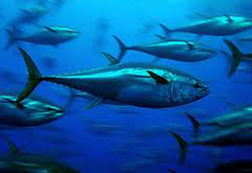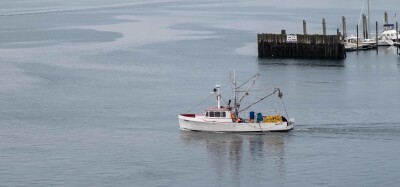If one species could serve as a poster child for fishery conservation efforts, it would probably be bluefin tuna. When NMFS was devising its new Atlantic bluefin tuna regulations, for instance, it received more than 200,000 public comments, according to a Reuters article announcing the new regulations.
Announced this week, those new rules will affect commercial fishermen by making surface gillnetting off limits during bluefin spawning months in the Gulf of Mexico in April and May. Longline restrictions will also be in effect off Hatteras, N.C., an area considered a prime feeding ground for bluefin, between December and April.
New bluefin tuna regulations will affect Gulf of Mexico and South Atlantic bluefin tuna harvesters. MarineBio Conservation Society photo Another change for longliners is that their bycatch and discards of bluefin will now be counted against their individual vessel quotas, meaning they must shut down fishing if they exceed it. The new rules start on Jan. 1.
According to NMFS and conservation organizations these new rules are a win-win: "The United States is committed to protecting Atlantic bluefin tuna using sustainable, science-based management, and we will continue to be an international leader in its management," said Eileen Sobeck, director of NMFS, in a statement. "These measures allow fishermen to continue fishing for their target species using alternate gear. We are balancing the needs of the fishermen with the recovery of bluefin tuna."
"This is a balanced solution to the problem, a good balance," Tom Wheatley, conservation manager for the Pew Charitable Trusts, told the Associated Press.
But do you, commercial fishermen and the people most affected, believe these new rules are balanced? Greg Abrams, a seafood dealer and boat owner from Panama City, Fla., told the Miami Herald that the restrictions were over the top and that they unfairly hit gulf fishermen while leaving the issue of bluefin take in Mexican waters untouched. "They've put so many fishermen out of business," he said.
Speaking of balanced, what gets left out in reports about bluefin is that U.S. fishermen sustainably harvest the species, playing by the rules and staying within quotas (but of course fishermen make up a small percentage of the 200,000 comments that came into NMFS when considering the measures). In fact, at the November meeting of the International Commission for the Conservation of Atlantic Tunas, quotas for Atlantic and Mediterranean stocks were slightly increased.
Sometimes if you play by the rules, you just get more rules.







